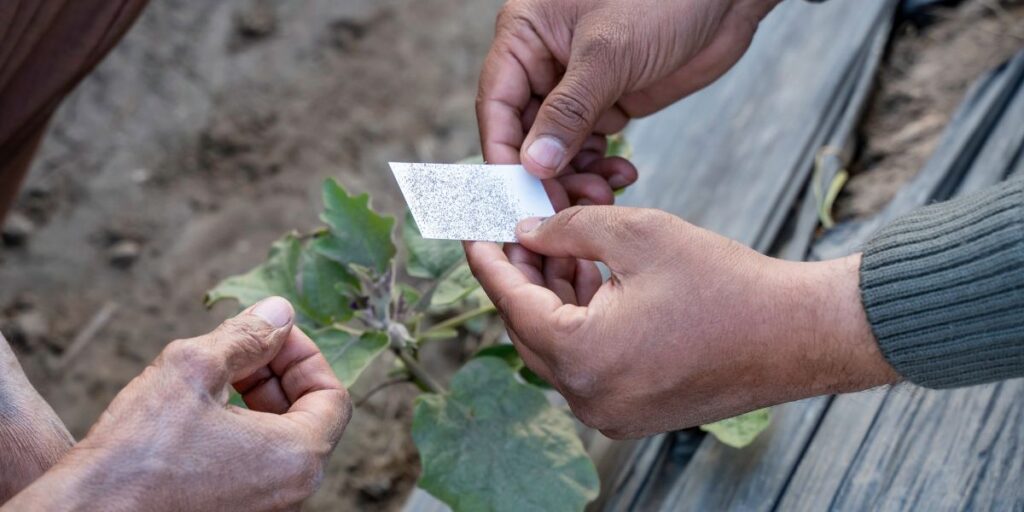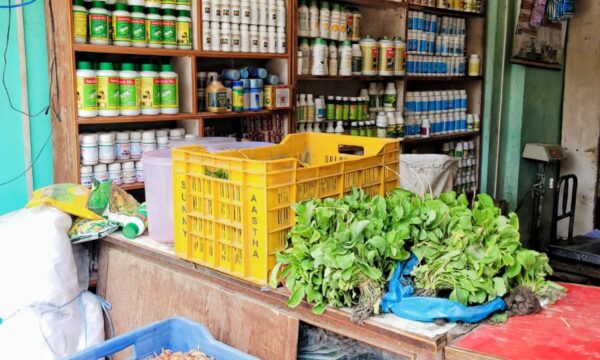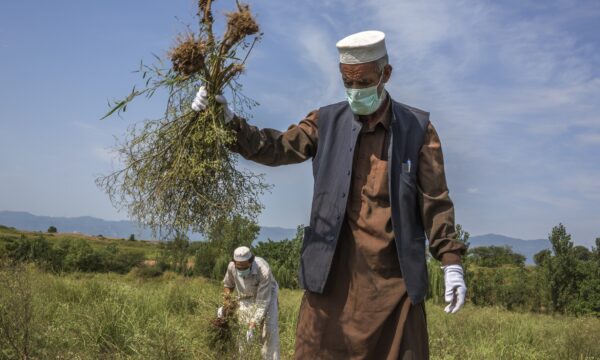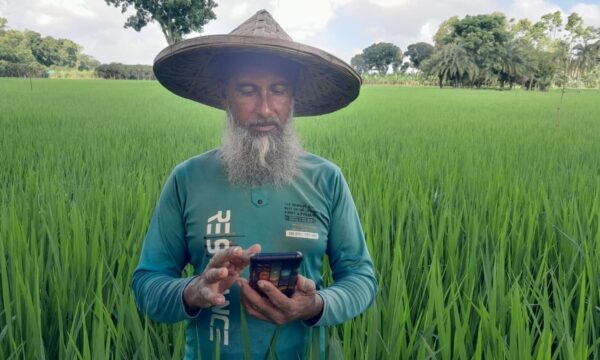CABI and BARI joined forces to help increase the capacity for Trichogramma wasps reared at a new facility officially opened in Rangpur to sustainably managed lepidopteran pests in vegetables.
A training course was held at RARS-BARI in Rangpur as part of a project implemented under the CABI-led PlantwisePlus programme to utilize biological control agents in the fight against pests such as the tomato fruit borer (Helicoverpa sp) on vegetables

It included training on the rearing of rice moth for maximum egg production and mass propagation of Trichogramma for field release. The training also featured the field release of Tricho-cards used to hold the Trichogramma wasps in place.
There were lectures and many practical exercises. For instance, on diet preparation and sterilization, setting up rice moth rearing trays, collecting rice moth adults and eggs, and the conducting of quality control assessments.
Trichogramma wasps offer the opportunity to manage lepidopteran pests – such as the tomato fruit borer – and have been used widely in more than 50 countries as part of commercial releases in 32 million hectares of crops every year.
Encouraging the adoption of lower-risk plant protection products

Dr Belinda Luke, Global Team Leader, PlantwisePlus, said, “This work is part of the PlantwisePlus Pesticide Risk Reduction pathway which aims to reduce the use of harmful chemical pesticides by promoting integrated pest management (IPM) solutions and encouraging the adoption of lower-risk plant protection products.
“An increasing number of farmers are using IPM tools including biological control and pheromone traps. As such it is likely that the Trichogramma produced at Rangpur would be acceptable for vegetable farmers.
Opening of Trichogramma rearing facility
The official opening of the Trichogramma rearing facility took place with Dr Abdullah Yousuf Akhond, Director General of BARI, in attendance with serval other BARI directors who all praised the work of the staff and wish them and the centre success.
It was stated that, in addition to the successful production of Trichogramma wasps, there would also need to be an awareness campaign to help farmers be aware of and understand the benefits of utilizing this biological control agent.
Top image: CABI, the Bangladesh Agricultural Research Council, and the Bangladesh Agricultural Research Institute, meet to inspect the Trichogramma rearing facility and train staff on how to produce the biological control agents.
Further reading
Working paper
Strengthening the system for invasive species preparedness and management: Bangladesh
Research paper
PlantwisePlus gratefully acknowledges the financial support of the Directorate-General for International Cooperation, Netherlands (DGIS); European Commission Directorate General for International Partnerships (INTPA); UK International Development from the UK government; and the Swiss Agency for Development and Cooperation (SDC).
Related News & Blogs
PlantwisePlus develops agro-input dealer training scheme with Bangladesh government
Pest outbreaks in Bangladesh are causing a rapid increase in the sale of pesticides. Farmers are turning to chemical products such as fungicides, herbicides and insecticides to manage pests, which they often buy from their local agro-input dealer. Howe…
22 January 2026




